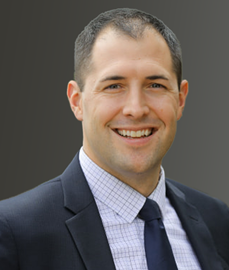
K_E_N/Shutterstock
.
With the release of President Donald Trump’s budget, summer program and after-school advocates around the country are again gearing up to rally behind the nation’s only federal funding stream for the afterschool and summer programs that keep nearly two million students safe and engaged while their parents are working.
We know that we can no longer rely on only school-day hours to develop successful, workforce-ready citizens. The lines of learning time are blurring, and afterschool and summer are just as important as the school day.

Cathy Stevens
The 21st Century Community Learning Center (21CCC) funding stream supports 13 after-school programs in Green Bay, Wis., a partnership among the school district, Boys & Girls Club and YMCA that provides for more than 1,000 children daily. These sites are funded through a combination of federal 21CCLC, local and privately raised dollars.
While the partnership in Green Bay is currently sustainable, there is an annual fear of a loss of federal support, which would be devastating to the youth and families who are currently utilizing these programs. But there are thousands of other students who would benefit from such a program if more of them had the financial resources to be formed.
More than a decade of implementing a continuous improvement process has led 21st CCLC programs to focus on complementing — but not duplicating — the school day, and to focus on developing the whole child, as the January report from Aspen Institute National Commission on Social, Emotional, and Academic Development suggests. After a highly structured and focused school day, young people need a chance to learn in a different way.
More investment needed
Now is not the time to stop the progress being made in Green Bay and other after-school programs across the country.
Recent polling in the summer of 2018 showed that 67 percent of Americans support after-school programming. The poll also shows continued widespread support for public investment in the after-school field, with two in three adults saying they want their federal, state and local leaders to provide funding for after-school and summer learning programs.

Eric Vanden
The survey found that seven in 10 adults are opposed to eliminating federal funds for after-school programs, with more than half of adults in strong opposition (52 percent). Among Democrats, 94 percent agree that after-school is important to their community; among Republicans, 86 percent agree.
As director of and participant in a national fellowship focused on after-school policy, we are expanding our efforts and messaging to business leaders, to policymakers and to a broad set of community partners that now is the time for more and better investment in these beyond school hours.
Though we live thousands of miles apart in different-sized cities, we both see the great need for affordable after-school programs in our communities. We’ve seen firsthand that when students participate in after-school and summer programming, they develop in-demand skills that will aid them their entire lives in school, college and the workplace.
We call on every state to work with their after-school networks to align resources and leverage partners so that each young person in America has access to quality summer school and after-school programming.
We call on our federal representatives to preserve and grow the federal 21st Century Community Learning Center program. Millions more young people would participate if given the chance.
We call on mayors and city councils to partner with programs and devote more resources toward quality and affordable after-school and summer opportunities for students.
Together we can reshape learning and change lives in America’s classrooms, schools and communities.
Cathy Stevens is a program director at the Richard W. Riley Institute at Furman University in Greenville, S.C. She has worked at the Institute since 2005.
Eric Vanden Heuvel has served as chief academic officer for the Boys & Girls Club of Greater Green Bay since 2014. Before that, he spent seven years in public education as a classroom teacher and elementary principal.





























